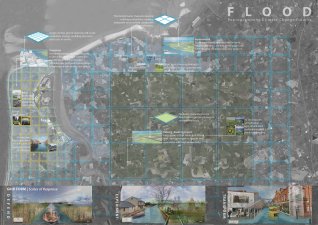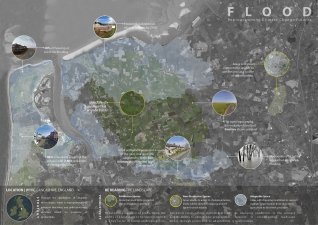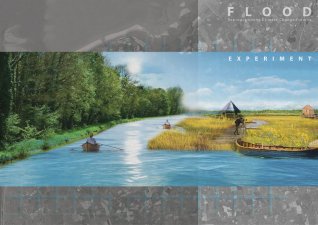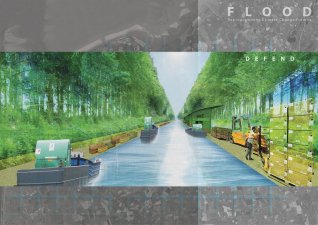David Mulhern
It's estimated that sea levels around the coast of North West England will rise by up to 840mm by 2100. This anticipated rise will substantially alter the current path of the River Wyre and lead to extensive inundation of coastal areas. The Wyre floodplain consists of a mosaic of high value agricultural land, which will be unable to adapt to future dynamic conditions and will be rendered obsolete.
My project examines how the landscape can be considered both sacred and sacrificial and how water can be reprogrammed as a strategic element to integrate biocentric and anthropocentric activities, based on measures of productivity. The formation of a grid, controlling the volume and direction of the water, strengthens existing productive spaces. As a result of this organisational framework, left over spaces are re-territorialised, creating dynamic areas which have a high degree of ecological adaptability, and are able to respond to fluctuating water levels.




